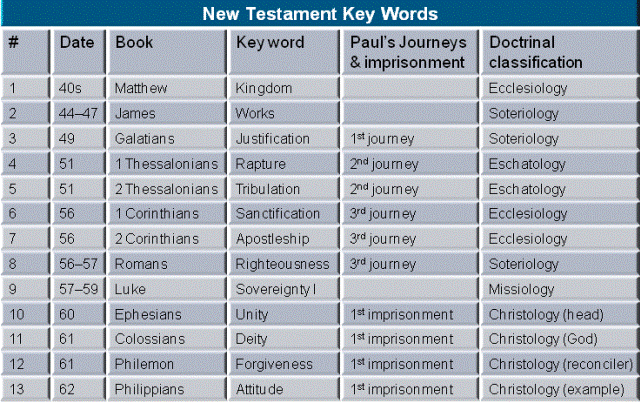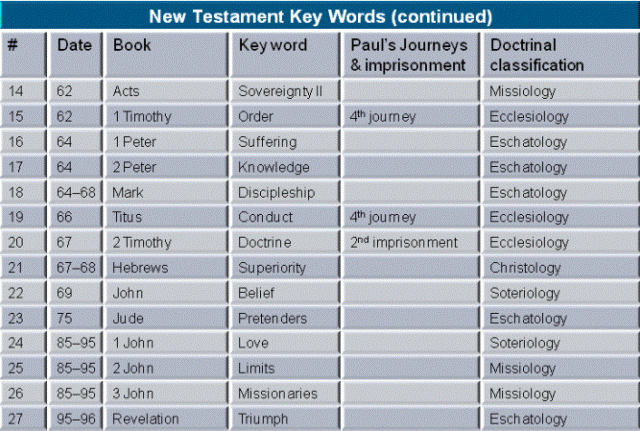
In many ways, the New Testament can be considered the most important compilation of books ever written. Whether readers view the New Testament as a historical and cultural treasure or as the ultimate source of spiritual guidance, it tells the pivotal story of Jesus of Nazareth. He came as the promised Messiah in fulfillment of the Old Testament (OT) prophecies and to establish the kingdom. In the Gospels, Jesus introduces the kingdom to the Jews, but the nation rejects His offer. After studying the Gospels, we follow the expansion of the kingdom, see it tested, and see its ultimate victory.
The New Testament books were originally written in Greek by at least eight different authors. It was compiled over a period of about fifty years. The complexities of these historical books have sparked much debate among religious scholars. However, each text was recorded as the inspired Word of God. The message that they contain is hope for all who accept Jesus Christ as their Savior.
This course will examine all twenty-seven New Testament (NT) books, their authors, their historical context, and their unique messages and purposes for both the Christian believers and the wider world. The charts below list all the NT books in chronological order with their key words.


By the end of this course you will be able to do the following:
The lessons in this course are grouped into the following four units:
Unit 1: The Kingdom Is Introduced
Lesson 1: Matthew
Lesson 2: Mark
Lesson 3: Luke
Lesson 4: John
Unit 2: The Kingdom Is Expanded
Lesson 5: Acts
Lesson 6: James and Galatians
Lesson 7: 1 & 2 Thessalonians
Lesson 8: 1 & 2 Corinthians
Unit 3: The Kingdom Is Tested
Lesson 9: Romans
Lesson 10: Ephesians and Colossians
Lesson 11: Philemon and Philippians
Lesson 12: 1 & 2 Peter
Unit 4: The Kingdom Is Victorious
Lesson 13: Hebrews
Lesson 14: Titus, 1 & 2 Timothy
Lesson 15: John's Epistles and Jude
Lesson 16: Revelation
As you plan your study schedule, you need to determine the dates when you want to finish each unit. You can then divide your time into study periods for each lesson.
We suggest that you try to do one lesson per week or three lessons per month. You can do this if you study about one hour each day.
Benware, Paul N. Survey of the New Testament. Everyman's Bible Commentary. Chicago: Moody, 1990.
Elwell, Walter A., and Robert W. Yarbrough. Encountering the New Testament: A Historical and Theological Survey. 2nd ed. Grand Rapids: Baker, 2005.
Gospel Light Pub. Reproducible Maps, Charts, Timelines & Illustrations. Originally The Bible Visual Resource Book: For Do-It-Yourself Scholars. Ventura, CA: Gospel Light, 1989.
Walvoord, John F., and Roy B. Zuck, eds. The Bible Knowledge Commentary. Vol. 2: New Testament Edition. Wheaton: SP Pub., Victor, 1983.
Wilkinson, Bruce, and Kenneth Boa. Talk Thru the Bible. Nashville: Nelson, 1983.
"New Testament Survey" by Rick Griffith, ThM, PhD